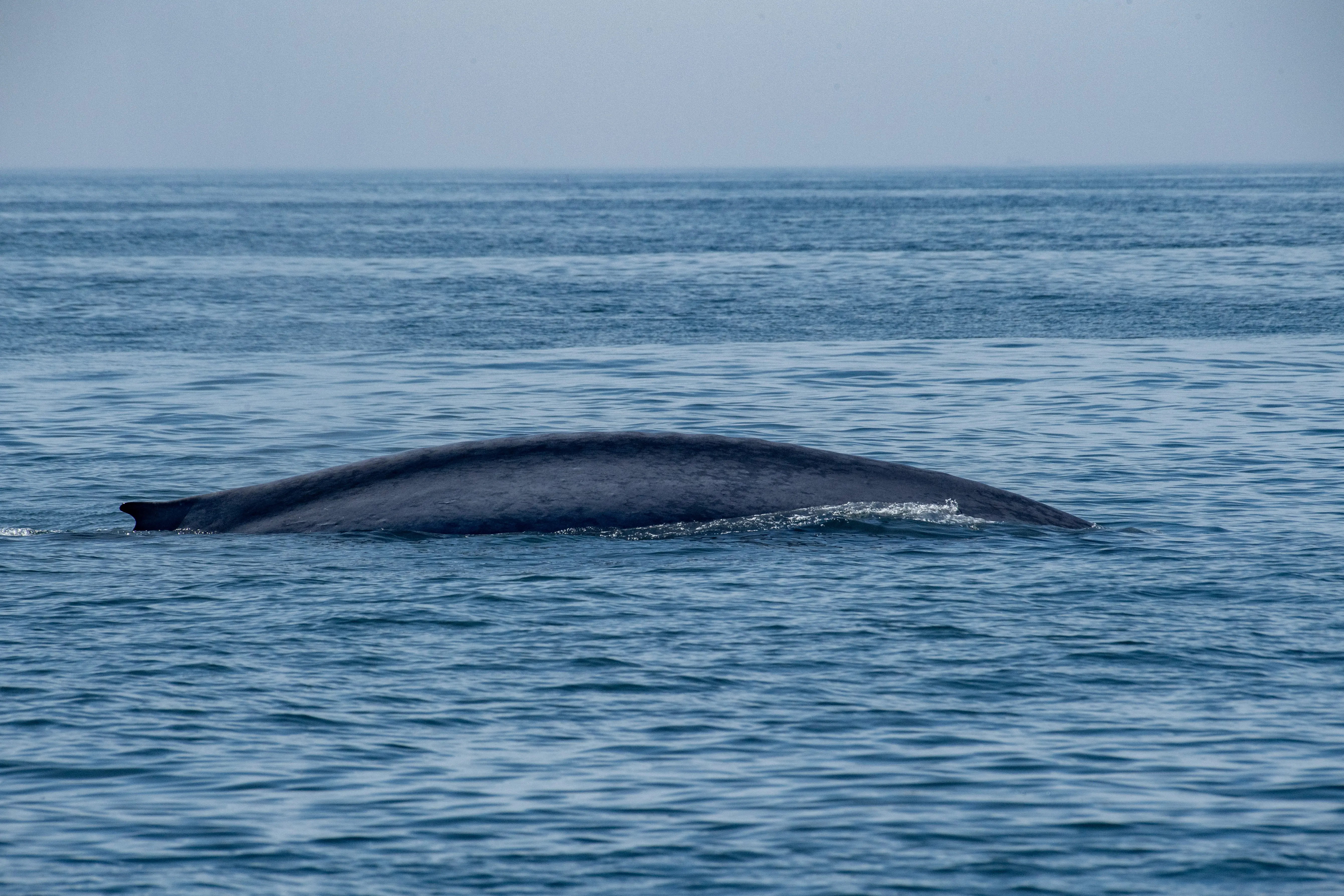Why are blue whales going silent? Researchers are studying a strange change in their behavior
-
 MASSACHUSETTS, UNITED STATES - JULY 08: A blue whale, the world's largest creature and an endangered species, swims on the water surface off the coast of Gloucester on the Jeffreys Ledge in the Stellwagen Bank National Marine Sanctuary in Massachusetts, United States on July 08, 2024. (Photo by Joseph Prezioso/Anadolu via Getty Images)
MASSACHUSETTS, UNITED STATES - JULY 08: A blue whale, the world's largest creature and an endangered species, swims on the water surface off the coast of Gloucester on the Jeffreys Ledge in the Stellwagen Bank National Marine Sanctuary in Massachusetts, United States on July 08, 2024. (Photo by Joseph Prezioso/Anadolu via Getty Images)Blue Whales going silent has become a growing concern for scientists around the world. These gentle giants, known for their deep and powerful underwater songs, are now calling out less and less. In some areas, their voices are becoming so faint that even sensitive equipment can barely detect them.
This strange shift has left researchers puzzled. For many years, blue whales have used sound to communicate, find each other, and even navigate underwater. So why are they going silent? Scientists are now studying this change in behavior and trying to understand what it means for these gentle giants—and the oceans they live in.
The Blue Whale’s song is a powerful tool for survival
Blue whales don’t sing for fun. Their low-frequency songs are a vital part of their lives. They use sound to call out to other whales, especially during mating season. These songs can travel for hundreds of miles through the water. They help whales stay connected, even when they are far apart.
Researchers have been recording whale songs for decades. Over time, they noticed something surprising—the pitch of blue whale songs is getting lower. Now, they’ve also found that in some parts of the world, whales are becoming less vocal overall. Some calls are so faint that they are hard to detect, even with sensitive equipment.
This shift is not just about volume. It could also mean that blue whales are changing how they interact with each other or their environment.
What could be causing the silence?
There is no clear answer yet, but scientists have some ideas. One possible reason is noise pollution. The oceans are becoming louder due to ships, underwater drilling, and other human activity. All this noise may be making it harder for whales to hear each other. As a result, they may be changing their sounds or choosing not to call at all.
Another theory is climate change. As ocean temperatures shift and ice melts, the underwater environment is changing too. These changes might affect how sound travels in water or how whales move and behave. If food sources or migration routes are different now, whales might not need to sing as often or as loudly as before.
It’s also possible that blue whales are finding other ways to communicate, or that their population patterns are shifting. If there are more whales in an area, they might not need to sing as much to find each other.
Why this change matters
The silence of blue whales is not just a mystery—it could also be a warning. If whales are going silent because of human activity or environmental stress, it may be a sign that something bigger is happening in the ocean. Blue whales play an important role in marine ecosystems, and changes in their behavior could affect other sea life too.
Scientists are now using advanced underwater microphones to study these sound changes more closely. By understanding what’s happening, they hope to find ways to protect blue whales and the ocean habitats they rely on.
This research is important because sound is such a big part of ocean life. Many sea animals—not just whales—depend on sound to survive. The more we understand how noise and environmental changes affect them, the better we can care for the ocean.
What comes next?
For now, blue whales are still out there, swimming through deep waters and singing in their own way—even if their voices are quieter than before. Scientists will continue to listen and learn, hoping to answer the big question: Why are blue whales going silent?
As more studies are done, we may discover new facts about whale behavior, ocean noise, and the impact of climate change. Until then, researchers are encouraging stronger protection for marine life and more awareness about how human actions affect the sea.
TOPICS: Blue Whales